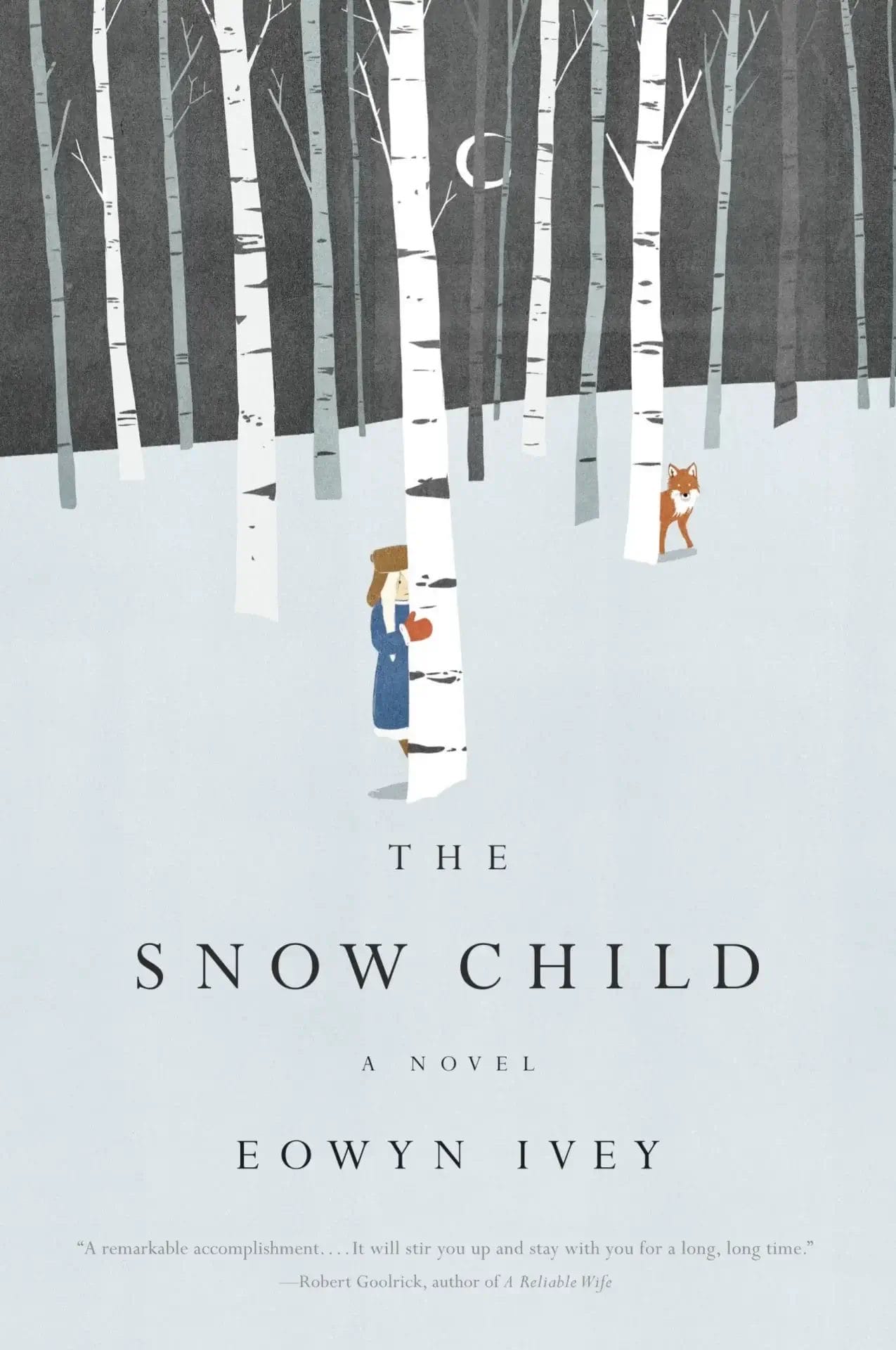

The Snow Child
By Eowyn Ivey
Alaska, 1920: a brutal place to homestead, and especially tough for recent arrivals Jack and Mabel. Childless, they are drifting apart–he breaking under the weight of the work of the farm; she crumbling from loneliness and despair. In a moment of levity during the season’s first snowfall, they build a child out of snow. The next morning the snow child is gone–but they glimpse a young, blonde-haired girl running through the trees. This little girl, who calls herself Faina, seems to be a child of the woods. She hunts with a red fox at her side, skims lightly across the snow, and somehow survives alone in the Alaskan wilderness. As Jack and Mabel struggle to understand this child who could have stepped from the pages of a fairy tale, they come to love her as their own daughter. But in this beautiful, violent place things are rarely as they appear, and what they eventually learn about Faina will transform all of them.
My thoughts:
Eowyn Ivey has this uncanny ability to immerse you completely in her settings, and once again, she doesn’t disappoint. I picked up this book after reading Ivey’s “Black Woods Blue Sky”, which I really enjoyed (even though it seems I’m in the minority there). While this book is undoubtedly gorgeous and beautifully written, I still found myself more drawn to “Black Woods Blue Sky”. Still, I can see why this one has garnered so much praise. It’s atmospheric and very poignant.
This time around, Ivey tells the story of Jack and Mabel, a childless couple who wanted very badly to have a house full of children, but the universe didn’t have that in its plan for them. The two move to Alaska to homestead, hoping for a quieter life, but the solitude does more to depress them (especially Mabel) than help, mostly because the stillbirth of her child still haunts her. One night, after dinner with other homesteaders in the general area, Mabel and Jack come home and build a snowman (or, snow child). They go to bed, make love, and the following day, the snow child has melted, but then Jack sees a little girl in the woods. A child the two eventually begin to care for in a strange, but wonderful way. Is the child really a wild child who lives in the woods, or is the child a product of Mabel’s wishes and the snow child that they built? (I won’t say more so as not to spoil anything.)
Like in “Black Woods, Blue Sky”, we’re in Alaska (this time in 1920), and what Ivey does extremely well is make sure that her setting becomes more than just a backdrop; it’s practically a character. You feel the bitter cold. You hear the crunch of snow underfoot. You sense the isolation pressing in on the characters as they struggle to carve out a life in the wilderness.
Speaking of characters, Jack and Mabel are crafted with such care that you can’t help but feel for them. Mabel, in particular, captured my heart. She’s been through so much—heartache, loss, the weight of unfulfilled dreams—and yet she still holds on to a glimmer of hope. I just wanted her to find some semblance of happiness. Jack, too, is compelling in his own way—stoic, hardworking, but clearly worn down by the relentless grind of survival. Both of their pain is palpable. What really struck me was how authentic their relationship felt. There’s a realness to their distance, the way grief has worn them down in different ways. They’re not perfect, but they’re painfully human, and that’s what makes their moments of connection so powerful.
Then there’s Faina, the mysterious snow child. Ivey’s inspiration from the Russian fairy tale Snegurochka is beautifully woven into the narrative, giving the story a timeless, fable-like quality. Is she real? A figment of Jack and Mabel’s imagination? A manifestation of their deepest wishes? That question is what keeps you invested.
Despite everything I loved—the prose, the atmosphere, the way Ivey paints loneliness and hope—I didn’t feel entirely swept up in the story. Maybe it’s because I wanted more from the plot or because the pacing dragged a bit for me. At times, it felt more like a series of beautiful, isolated moments rather than a cohesive, forward-moving narrative.
Also, while I connected deeply with Mabel and Jack, I didn’t feel as drawn to Faina as I thought I would. The mystery surrounding her kept me at arm’s length, and while that was clearly intentional, it made it harder for me to fully invest.
I listened to the audiobook of this one and it’s narrated by Therese Plummer. She does a fantastic job of capturing each character’s voice, and she hits all of the emotional moments with precision.
This is definitely a beautifully written novel. Ivey’s prose is lyrical without being overwrought, and the way she captures the Alaskan wilderness is breathtaking. If you’re in the mood for something that feels like a modern fairy tale wrapped in a historical fiction cloak—something that’s both tender and haunting—this might just be what you’re looking for.













